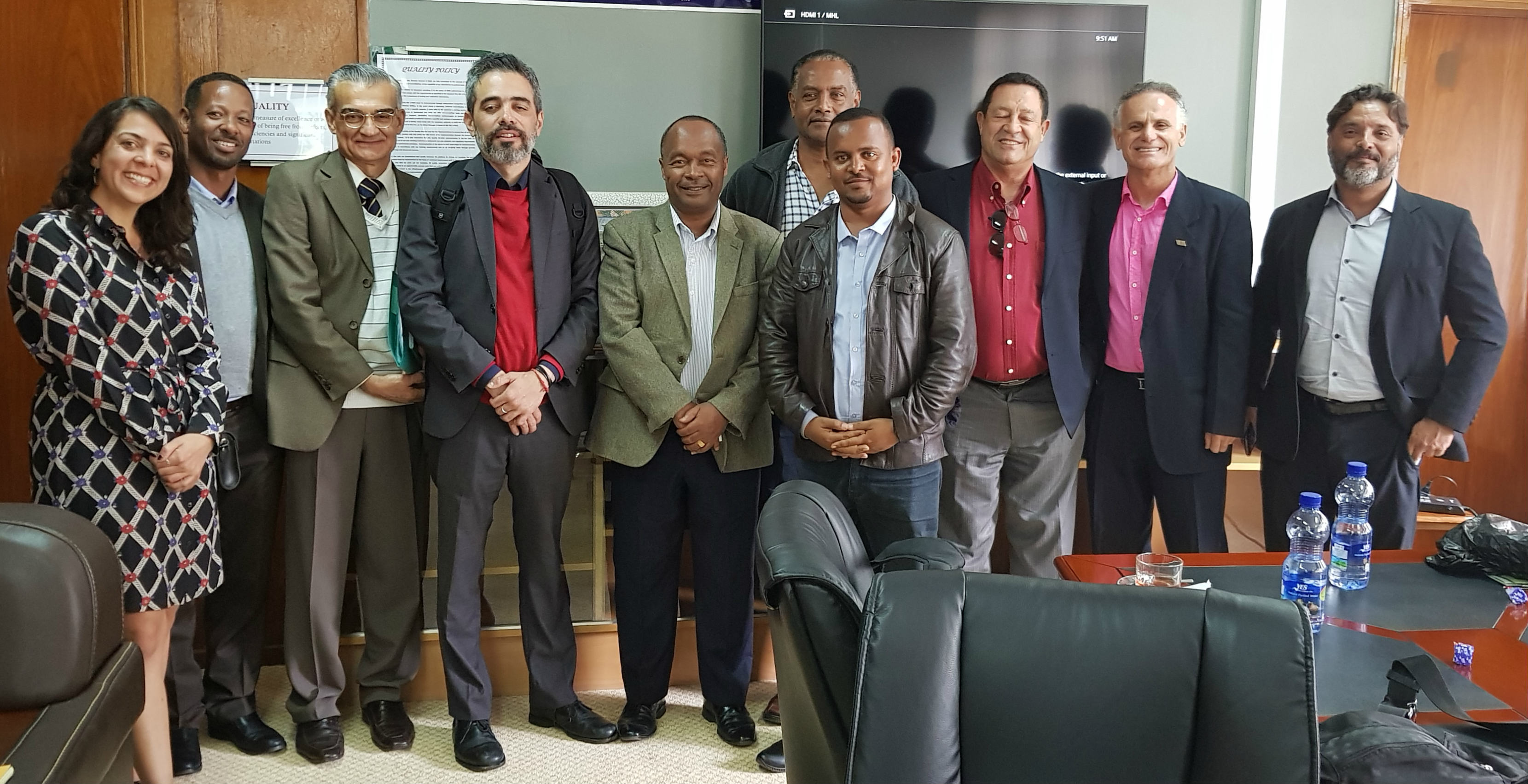Ethiopian acid soil management can count on Brazilian technology
Ethiopian acid soil management can count on Brazilian technology
The head of research and development, Vinicius Benites, and the researcher Enio Fraga da Silva, from Embrapa Soils (Rio de Janeiro, RJ), have been to Ethiopia - the second most populous country in Africa, with 100 million inhabitants -, from June 03 to June 09, upon an invitation from the Brazilian Cooperation Agency (ABC), to transfer Brazilian expertise in the management of acid soils to the African country in a project that is due to last two years. An Embrapa's partner in the venture will be the Ethiopian Institute of Agricultural Research (EIAR). In a meeting with the Ethiopian minister of agriculture, Ato Shiferaw Shigute, the Brazilian duo heard that “Embrapa is a reference for us”.
“The social and economic impact of this partnership is going to be much higher than the investment in it, it is not new knowledge for Brazil, we have mastered the subject. We are going to transfer it to Ethiopians as training and capacity-building”, Benites reports. In Ethiopia, 85% of the population is in the fields, generally in smallholdings that are two to three hectares large.
Nearly 50% of Ethiopian soils are acid, poor lands, with low pH. Brazil has cutting-edge technology in that kind of cultivation, as it recalls the expansion of the agricultural frontier led by Embrapa from the 1970s on. “However, our proposal is not about transferring our agricultural technology set to them. The land property structure in Ethiopia is completely different from the Brazilian one. These are smallholdings, with basically manual, undermechanized cultivation, and subsistence agriculture. We are indeed going to use Brazil's experience of using limestone to correct soil acidity, however, the application and distribution of the input has to be adapted to their conditions”, Vinicius underscores.
Even though the soils are acid in Ethiopia, they are not Latossolos like Brazil's, but rather Nitossolos, according to the Brazilian Soil Classification System (not Ferralsols but Nitisols, according to WRB/FAO's).
Liming
While a common practice in Brazil, liming is not used in Ethiopia. “We intend to encourage the use of best practices in liming and fertilization”, Enio states.
Sources of lime will be tested in the African country; experiments will be prepared according to survey results in order to check the response curve of popular crops in the country, like barley and wheat. Previous experiments have pointed to a 3- to 10-fold increase in productivity with liming.
Since there is no commercial lime production in the African country, government policy will encourage the setup of manufacturing plants.
A one-week visit from EIAR researchers to Embrapa Soils is also scheduled.
Translation: Mariana Medeiros
Carlos Dias (20.395 MTb RJ)
Embrapa Soils
Press inquiries
carlos.diniz-dias@embrapa.br
Phone number: +55 21 2179-4578
Further information on the topic
Citizen Attention Service (SAC)
www.embrapa.br/contact-us/sac/


